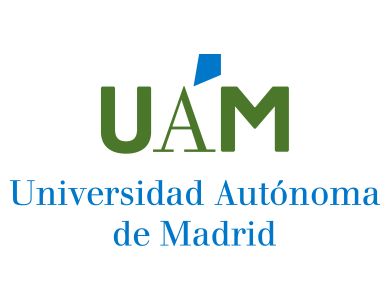Universidad Autónoma de Madrid (UAM) is a state university offering graduate and postgraduate degrees in many different fields. It is a young university -founded only 50 years ago- but has already achieved an outstanding international reputation for its high-quality teaching and research. It is generally recognized as one of the best Spanish universities in both national and international rankings 11th worldwide position in the QS University Rankings. UAM is a university with a distinguished record in research. Research activity covers a wide range of disciplines, from Social and Educational Sciences and Humanities to the basic Sciences (Physics, Chemistry, Biology and Mathematics), Health Sciences and Engineering. Almost three thousand professors and lecturers actively engaged in original research are organized in 65 Departments, 17 Research Institutes and 20 additional Centers. Moreover, in 2009 UAM became Campus of Excellence CSIC-UAM.
The main role in the project aim will consist on the selection and optimization of a membrane for its application in AORFB. UAM will contribute to the definition of the battery prototype specifications and material and components specifications. Also, Performance Improvement between aqueous organic electrolyte and membrane will be study and membrane optimization will be done. Experimental evaluation of single cell (laboratory level) and later experimental evaluation of cell design parameters and Life Cycle Assessment twill be carry out. Communication and exploitation of the project, among other activities, UAM will publish 2 high impact papers.

Visit the Website
UAM intends to integrate exchange membranes and/or cheap separators for application in organic aqueous flow batteries that represent within the prototype designed in the HIGREEW project an important advance in the field of renewable energy storage.